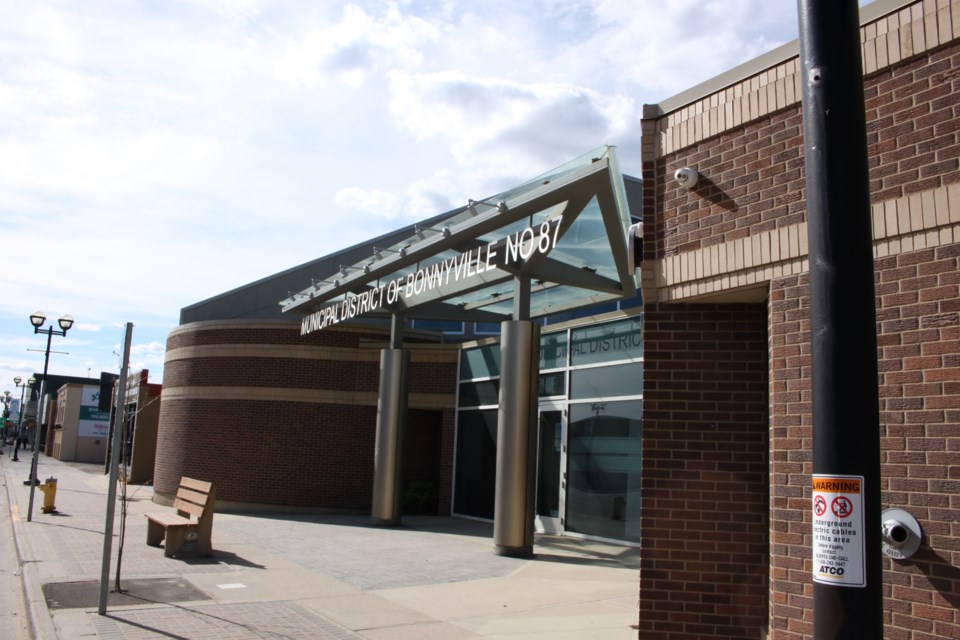BONNYVILLE – The MD of Bonnyville council has agreed to a 3.4 per cent tax increase for the 2025 budget. The increase will be lower than the original five per cent recommended increase from administration, after the MD of Bonnyville received the assessment year modifiers (AYM) from the provincial government earlier than expected.
In an explanation of AYM’s, The Rural Municipalities of Alberta website states, “Assessment year modifiers are mechanisms to adjust the base assessment value of linear and other property types up or down to reflect present costs. Alberta Municipal Affairs sets the assessment year modifiers for valuation on an annual basis.”
During the Dec. 10 council meeting, Susan Walker, general manager of Corporate Services, reported they had received the AYM earlier than anticipated, and did not expect to be realizing such revenue.
“Mr. Bespalko worked all weekend and gave us a really quick estimate of the impact of those assessment year modifiers on this 2025 Levy. The estimated increase in revenue is approximately $1.6 million,” said Walker.
She explained that because it is such a rough estimate done in haste, administration recommended the utilization of $1 million in revenue to reduce the five per cent tax increase down to 3.4 per cent.
Deputy Reeve Darcy Skarsen, and later Coun. Josh Crick, made mention of the fact that, come spring, there are factors that could end up impacting the tax rate anyways.
Coun. Don Slipchuck inquired about the tax revenue situation, pointing to an increase in the drilling of wells, but also inquired about the abandonment of old wells.
Coun. Dana Swigart commented that there will surely be an increase in tax revenue from the large amount of wells that have been drilled.
Bryan Bespalko, general manager of Infrastructure Services, referred to the risk involved in counting on estimates, and said that basing the budget on what has already been booked is a good starting point and promotes a budget that has a high likelihood of seeing positive impacts on tax rates.
During the previous council meeting on Nov .26, budget deliberations had to be tabled after council reached an impasse in their debate over the tax increase. Skarsen and Coun. Mike Krywiak strongly opposed a five per cent tax increase, while the rest of council argued that it was a forward-thinking approach that aimed to maintain a balanced budget for future councils, anticipate the costs associated with some large impending asks from the community and equipment replacement costs, and tackle projects before costs continue to rise.
In response to the recent revenue increase, Reeve Barry Kalinski felt the full five per cent tax increase was not warranted.
Coun. Ben Fadeyiw commented on his research into other councils in the province, and how they are having similar issues keeping up with inflation, and struggling with the same questions that the Bonnyville MD council has. Citing the wealth of services in Bonnyville, Fadeyiw feels a five per cent increase is still reasonable.
“Across the board, I came up with about a 5.22 per cent average increase . . . We're looking at the $72 annual increase which works out to be about $6 per month. We have some amazing services. We have two outdoor rinks that we keep getting serviced, we have the C2 Center, we have the BRFA (Bonnyville Regional Fire Authority) - we don't complain about those things, and I think an extra $6 a month is well warranted for that increase,” said Fadeyiw.
Krywiak disagreed, and commented on the ability of the MD to utilize the AYM increase in revenue to balance the budget and have a zero per cent increase.
Walker spoke about financial sustainability and said the MD is “coming from behind in addressing the future infrastructure requirements,” and that continuing a zero increase can result in “hitting a wall like Osoyoos did,” where they suddenly had to have a 39 per cent increase.
“We've made some good progress moving forward in addressing what the needs will be going into the future . . . in order to just maintain current services and keep up with inflation, there is a responsibility to recognize that and build that into the cost requirements for the organization,” said Walker. “I would caution council that inflation hits us all, and there are cost implications to meeting those needs.
Slipchuk commented on the amount of impending bridge repairs and upcoming projects. He agreed with Fadeyiw’s idea of keeping the five per cent increase
“It's still a low rate to pay for have the services we have in this community,” said Slipchuk.
“I personally hate tax increases,” said Crick. “But I do like driving on the roads and I like being able to cross the bridges and if we're going to keep our roads up to par and our bridges functional over the next 10 years, then we need to have a modest increase and just to keep up with inflation and to have money in reserves for that so I think this is responsible thing to do.”
A motion to increase the tax rate by five per cent was defeated by council.
“I think five per cent is too high,” said Skarsen. “And just to be able to . . . pad our reserves. I think our operating budget is funded regardless of a tax increase or not, so there's no worry about that and even without an increase of zero we would still be putting over $10 million into reserve funding. To me it's just ludicrous. I don't understand the logic behind it.”
Skarsen made a motion for the 3.4 per cent increase recommended by administration. The motion was carried 4-3.



